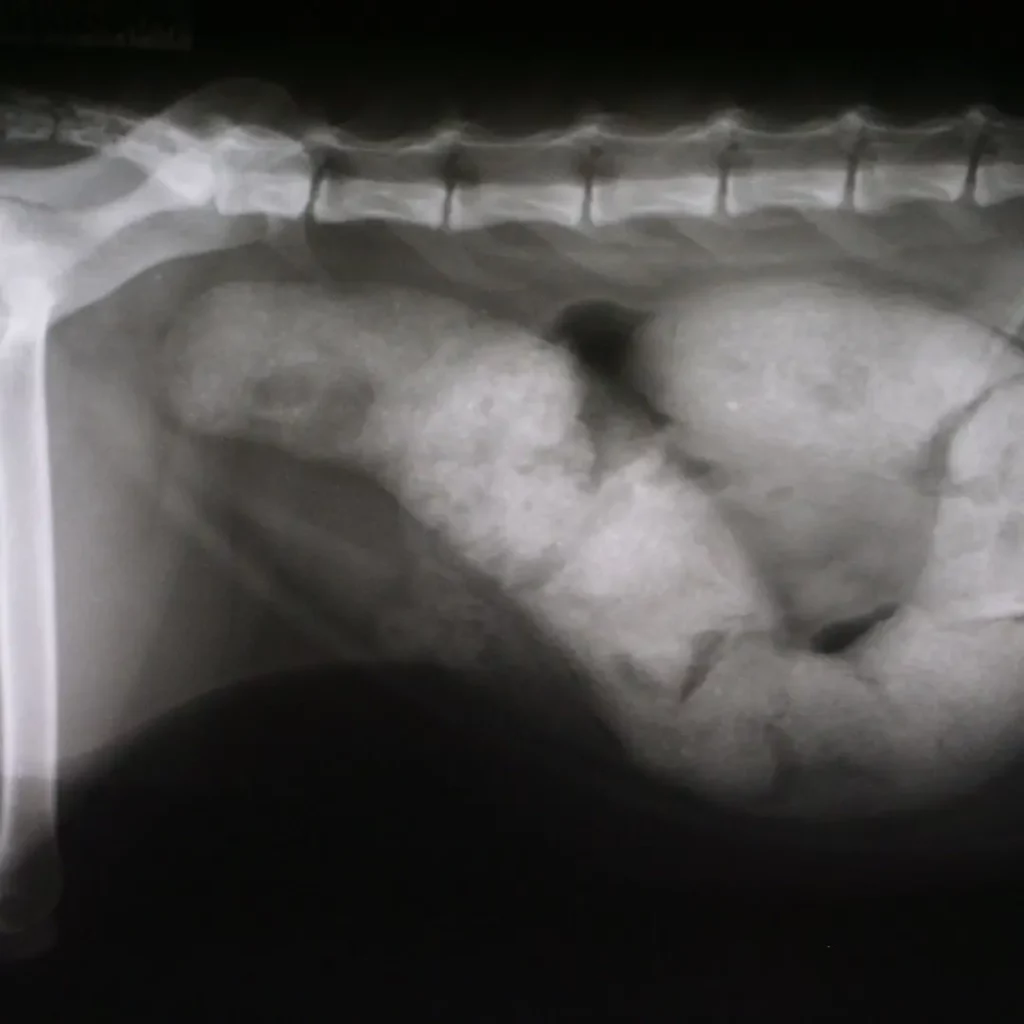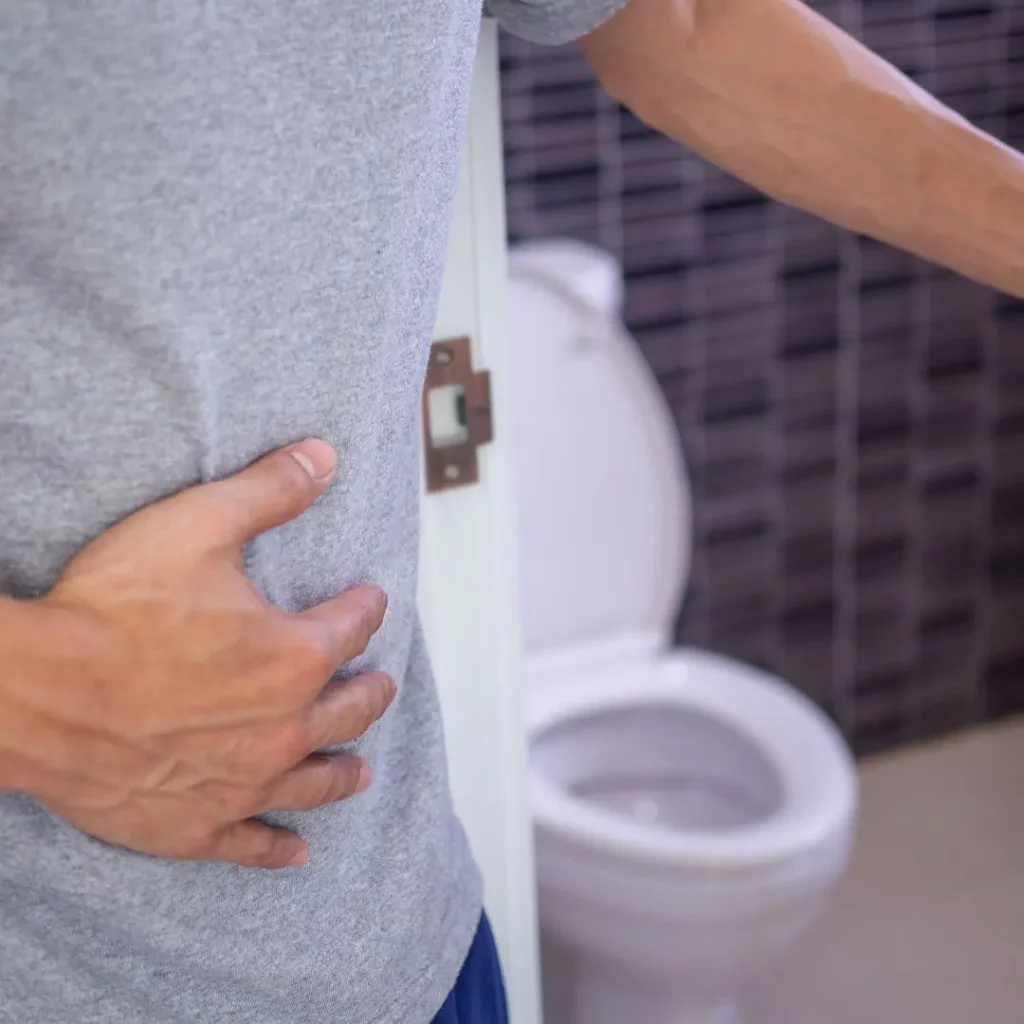Unlike whole food protein sources like meat, beans, and lentils, most protein powders lack their champion ally – fiber.
This dietary hero plays a crucial role in adding bulk and promoting smooth passage through your digestive tract. Constipation can become a roadblock if you rely heavily on protein shakes without prioritizing fiber-rich whole foods.
Let’s get into the causes of constipation and relief tips.
Table of Contents
Protein Shakes and Constipation
Factors associated with protein shakes can contribute to a sluggish digestive system. Let’s delve into the science and shed light on this gut-wrenching concern.
- Many protein powders, especially whey protein, contain lactose, the sugar in milk. If you’re lactose intolerant, this can cause bloating, gas, and, yes, constipation.
- High-protein diets put your kidneys to work overtime, requiring ample water to flush out waste products. Skimping on fluids can lead to dehydration, which translates to a drier, harder-to-pass stool – a recipe for constipation. Remember, even a mild state of dehydration can impact your gut health.
- Some protein powders boast artificial sweeteners, thickeners, and other additives to enhance flavor and texture. While convenient, these extras can disrupt your gut microbiome, potentially leading to digestive issues like constipation in some individuals.
If you have pre-existing digestive issues like Irritable Bowel Syndrome (IBS), protein shakes might act like fuel to the fire, worsening constipation symptoms.
Do protein shakes affect your bowels?

Yes, protein shakes have the potential to affect your bowels in several ways, both positively and negatively. Here’s a breakdown:
Negative Impacts
- Constipation: This is the most commonly reported issue. Protein powders generally lack fiber, essential for digestive regularity. Overreliance on protein shakes without enough fiber from whole foods can lead to constipation.
- Lactose intolerance: Many protein powders, especially whey protein, contain lactose. If you’re lactose intolerant, consuming them can trigger bloating, gas, and constipation.
- Dehydration: High-protein diets require extra water to process waste. Skimping on fluids can lead to dehydration, hardening stool and making it more difficult to pass, contributing to constipation.
- Gut microbiome disruption: Some protein powders contain additives like artificial sweeteners and thickeners. While generally safe, these can disrupt your gut microbiome in some individuals, potentially leading to digestive issues like constipation.
Positive Impacts
- Regularity: Choosing a protein powder with added fiber can aid in bowel regularity.
- Protein source for gut health: Certain protein sources, like pea or hemp protein, are considered gut-friendly and may contribute to a healthy gut microbiome.
Individual Differences:
Everyone reacts differently to protein shakes. What may cause constipation for one person might not affect another. Factors like underlying digestive conditions, overall diet, and individual gut sensitivity play a role.
Impact of different protein types on constipation
| Protein powder type | Lactose content | Fiber content | Potential constipation risk |
| Whey protein | High | Low | High, especially for people with lactose intolerance |
| Casein protein | High | Low | High, especially for people with lactose intolerance |
| Soy protein | Moderate | Low | Moderate, may cause bloating and gas in some people |
| Pea protein | None | Low | Low |
| Rice protein | None | Low | Low |
| Hemp protein | None | Moderate | Low |
How do you avoid constipation when taking protein shakes?

Avoiding constipation when taking protein shakes involves three key strategies:
- increasing fiber intake
- staying hydrated
- choosing suitable protein powders
- pair your shake with high-protein veggies
- start slow
- monitor your response
- consult a healthcare professional
Increase Fiber Intake
- Choose protein powders with added fiber. Some examples include Vega One, Orgain Organic Protein Powder, or Garden of Life Raw Protein.
- Supplement with fiber: If your chosen protein powder lacks fiber, consider adding a fiber supplement like psyllium husk powder or Metamucil to your shake.
- Focus on whole food sources of fiber: Make sure your overall diet includes plenty of fruits, vegetables, and whole grains, naturally fiber-rich.
Stay Hydrated
- Drink plenty of water throughout the day: Aim for 8-10 glasses daily. Dehydration can harden stool and worsen constipation.
- Add hydrating fruits and vegetables to your shake: Blend in fruits like watermelon, berries, or spinach for an extra water boost.
Choose Suitable Protein Powders
- Minimize lactose intake: If lactose intolerant, opt for plant-based protein powders derived from peas, rice, or hemp. These naturally lack lactose and are easier to digest for many people.
- Avoid added sugars and unhealthy ingredients: Choose minimally processed, natural powders with clean ingredients. Watch out for artificial sweeteners, thickeners, and other additives that can disrupt your gut microbiome.
- Consider your protein needs: Don’t overdo it! Ensure your protein intake stays within your recommended daily limit based on age, activity level, and health goals. Overconsumption can put a strain on your kidneys and potentially worsen constipation.
Pair your shake with high-protein veggies
High-protein veggies include fiber and can help with constipation while staying in your caloric goals.
Start slow
If you’re new to protein shakes, gradually increase your intake to allow your body to adjust.
Monitor your response
Pay attention to how your body reacts to different protein powders and adjust your choices accordingly.
Consult a healthcare professional
If you have pre-existing digestive issues or experience persistent constipation, seek professional advice to determine the best approach for you.
Is it bad to drink a protein shake everyday?
There’s no harm in having a protein shake daily if it fits your needs and you choose a clean, healthy powder. However, you should focus on whole food sources of protein most of the time, ensure adequate fiber intake, stay hydrated, and listen to your body. Consult your doctor or a registered dietitian for personalized advice if you have any concerns.
-
Can Protein Shakes Cause Constipation: 7 Relief Tips
Unlike whole food protein sources like meat, beans, and lentils, most protein powders lack their champion ally – fiber. This dietary hero plays a crucial role in adding bulk and promoting smooth passage through your digestive tract. Constipation can become a roadblock if you rely heavily on protein shakes without prioritizing fiber-rich whole foods. Let’s…
-
How Many Grams of Protein In Brown Rice
Brown rice isn’t the main protein source in your meals but it brings plenty of benefits. It has a low GI (Glycemic Index), improves nerve function, gives energy, and is a staple food low in calories. Let’s boil down its protein content and muscle-building effects, and see how you can get the most out of…
-
How To Make Protein Shake Less Thick: 9 Tips
Protein powders, especially whey concentrate, can have a chalky or gritty texture. The thick mouthfeel of protein powder can make you just quit the day. We’ve all been there. So I’ll share my tricks on how to make protein shake less thick, as well as some tips for smoothies. Let’s blend this well. Why does…


